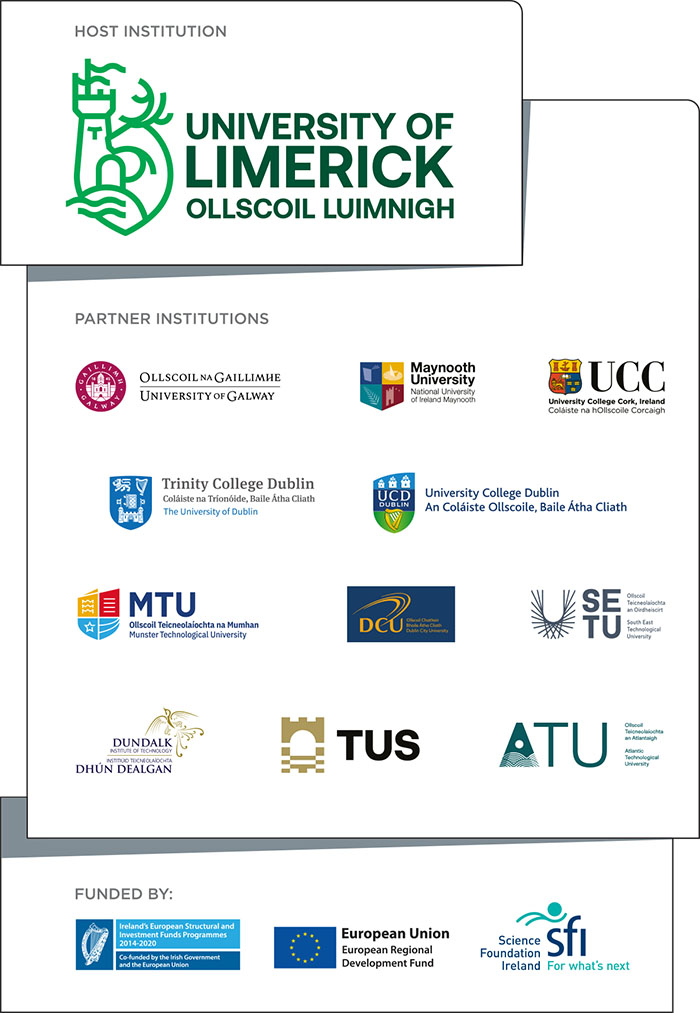Irish adults willing to download COVID-19 contact tracing app
You are here
The vast majority of Irish adults – 82% – are willing to download a contact tracing app to their smartphone to curb the COVID-19 pandemic, according to new research carried out by a team from Lero, the Science Foundation Ireland Research Centre for Software, University of Limerick (UL) and National University of Ireland Galway (NUI Galway). However, respondents also expressed several privacy concerns, including that the Government, tech firms or hackers might use the information gathered for other purposes after the pandemic.
In the survey, “A National Survey of attitudes to COVID-19 Digital Contact Tracing in the Republic of Ireland”, 98% of the more than 8,000 respondents stated that they understood the concept of contact tracing and 96% stated that informing the HSE of your close contacts is important if you develop COVID-19.
Lero’s Dr Jim Buckley said the response was very heartening considering that researchers from the University of Oxford estimated that, if 56% of people were to download an ideal contact tracing app in the UK, this would be enough to control the disease by itself.
It seems, Dr Buckley said, the primary driver for people’s willingness to download a public-health-backed, contact tracing app during the current crisis is a desire to help others and “for the greater good”. However, he noted, “studies in other jurisdictions have suggested that the actual adoption rate typically lags behind the take-up rate suggested by surveys performed in advance of contact-tracing apps’ launches. Therefore, there is no room for complacency and eliminating the disease requires a high degree of participation from the public and evidence-based app development.”
This Science Foundation Ireland funded research also shows 51% of respondents indicated they “definitely will install” the app if it becomes available, 31% indicated they “probably will install” the app. Ten per cent reported they “may or may not install” the app.
People preferred the idea of a Bluetooth app, with just 31% stating that they would prefer an app that uses geolocation technology. One of the survey authors Dr Michael O’Callaghan, general practitioner and researcher at the UL School of Medicine, said the results offer a good insight into people’s concerns relating to a contact tracing app.
“41% of respondents could see no reason not to install the app. The remaining 59% of respondents selected at least one option from a list of 10 options. ‘I worry technology companies will use this as an excuse for greater surveillance after the pandemic’ was selected by 41% of these, ‘I worry the government would use this as an excuse for greater surveillance after the pandemic’ was chosen by 33% and ‘I worry that my phone would be more likely to get hacked’ was selected by 1,742 (22%) of respondents. It is important, therefore, that those particular concerns be addressed if we are to ensure the greatest possible adoption of this technology,” Dr O’Callaghan said.
“Clear timelines on when this app would be wound down and how Bluetooth technology will allow information to be exchanged between phones are important messages that need to be communicated widely,” he added.
Dr O’Callaghan also said while the international evidence suggests that contact tracing apps are best employed as complementary to a manual tracing process, this study indicates a significant majority of the Irish general public are currently willing to download an app which aims to augment the contact tracing process.
Professor Liam Glynn, Professor of General Practice at UL’s School of Medicine and co-founder of #COVIDWATCHIRL, stressed that app download and ongoing use are two separate challenges. To ensure both occur, it will be essential to generate and communicate ongoing evidence to the general public and all other stakeholders that this app is useful to our country’s contact tracing efforts.
“It may be beneficial to keep the public informed on key data relating to the app, including downloads, active users and numbers of cases where the app has helped contact tracing efforts etc. People have indicated a clear willingness to help, but experience from other countries shows that intent to download does not always translate into actually downloading and using contact tracing apps. Allowing the general public to see in real-time the public health benefits of this app may help maintain public interest,” he said.
“Data from other countries suggest a significant response from early adopters, followed by a swift plateauing. However, these countries are reducing transmission and overall healthcare burden from COVID-19 effectively, so societal concern is likely to be declining. With the considerable uncertainty that prevails over the COVID-19 pandemic, it seems prudent for all countries to continue contact tracing app development and deployment,” he added.
According to Dr Jim Buckley of Lero and UL, analysis of free-text responses in the survey also yielded interesting insights. “Concerns regarding battery life and Bluetooth led some respondents to suggest that a means to automatically enabling Bluetooth when users leaves their home or workplace should be integrated into the app. Another suggestion involved setting times for the app to be active, which could be entered by the user in advance according to their work, travel or shopping schedule,” he said.




